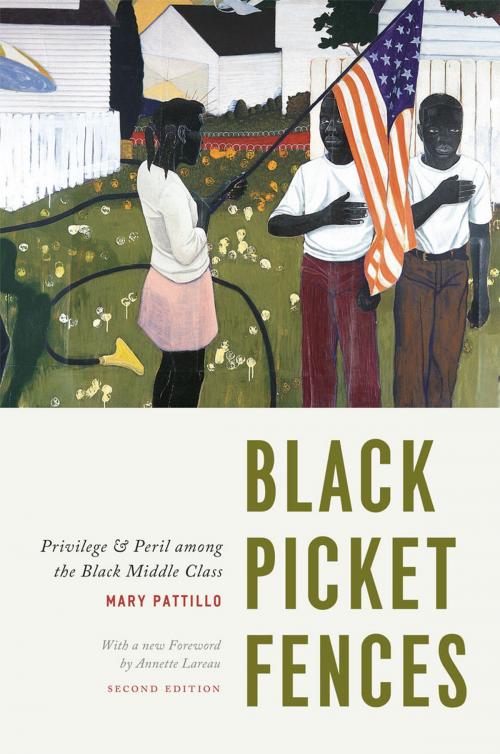Black Picket Fences, Second Edition
Privilege and Peril among the Black Middle Class
Nonfiction, Social & Cultural Studies, Social Science, Sociology, Urban, Cultural Studies, African-American Studies| Author: | Mary Pattillo | ISBN: | 9780226021225 |
| Publisher: | University of Chicago Press | Publication: | July 2, 2013 |
| Imprint: | University of Chicago Press | Language: | English |
| Author: | Mary Pattillo |
| ISBN: | 9780226021225 |
| Publisher: | University of Chicago Press |
| Publication: | July 2, 2013 |
| Imprint: | University of Chicago Press |
| Language: | English |
First published in 1999, Mary Pattillo’s Black Picket Fences explores an American demographic group too often ignored by both scholars and the media: the black middle class. Nearly fifteen years later, this book remains a groundbreaking study of a group still underrepresented in the academic and public spheres. The result of living for three years in “Groveland,” a black middle-class neighborhood on Chicago’s South Side, Black Picket Fences explored both the advantages the black middle class has and the boundaries they still face. Despite arguments that race no longer matters, Pattillo showed a different reality, one where black and white middle classes remain separate and unequal.
Stark, moving, and still timely, the book is updated for this edition with a new epilogue by the author that details how the neighborhood and its residents fared in the recession of 2008, as well as new interviews with many of the same neighborhood residents featured in the original. Also included is a new foreword by acclaimed University of Pennsylvania sociologist Annette Lareau.
First published in 1999, Mary Pattillo’s Black Picket Fences explores an American demographic group too often ignored by both scholars and the media: the black middle class. Nearly fifteen years later, this book remains a groundbreaking study of a group still underrepresented in the academic and public spheres. The result of living for three years in “Groveland,” a black middle-class neighborhood on Chicago’s South Side, Black Picket Fences explored both the advantages the black middle class has and the boundaries they still face. Despite arguments that race no longer matters, Pattillo showed a different reality, one where black and white middle classes remain separate and unequal.
Stark, moving, and still timely, the book is updated for this edition with a new epilogue by the author that details how the neighborhood and its residents fared in the recession of 2008, as well as new interviews with many of the same neighborhood residents featured in the original. Also included is a new foreword by acclaimed University of Pennsylvania sociologist Annette Lareau.















